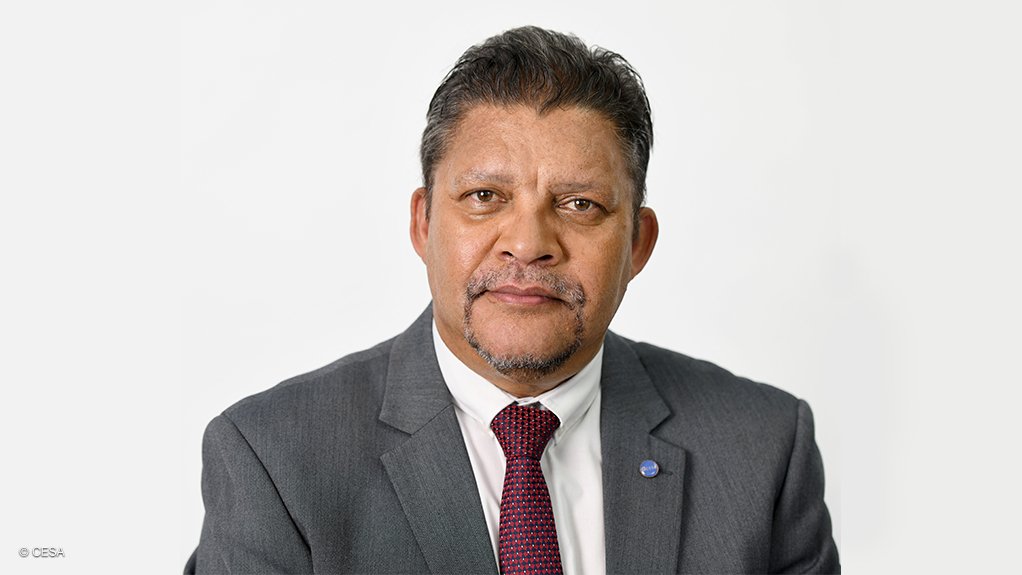Current infrastructure procurement processes are not appropriate for infrastructure development, owing to clients lacking the knowledge to adequately evaluate tenders, says industry association Consulting Engineers South Africa (Cesa) CEO Chris Campbell.
This results in an emphasis on choosing service providers that offer the lowest cost while neglecting the need for quality and sustainable infrastructure.
Rather than focusing on low costs, procurement processes should focus on acquiring infrastructure at the right costs, which embody quality services that are cost effective, along with focusing on the total cost of ownership, he says.
Current procurement processes are completely counterintuitive, particularly in the public sector, owing to the various stages of the procurement process.
The open tender system process has also resulted in fierce competition among consulting engineering firms, in addition to lower pricing, as such firms aim to secure the tender, adds Campbell.
However, lower prices often make it difficult for these companies to produce high-quality work, consequently resulting in infrastructure being designed conservatively.
“The starting point of developing long-term infrastructure is arguably wrong. You need to start at the right point by getting the best advice and ensuring that it is obtained at a fair value.”
If the starting point is wrong, it often results in higher maintenance costs because the client has to maintain that infrastructure more frequently, he states.
Dedicated Knowledge
Campbell says the industry is knowledge- based, and for clients to choose a tender, they need to understand the submissions and its implications.
Clients, particularly in the public sector, have to go through hundreds of responses to a tender, while often lacking the technical skills and knowledge required to evaluate submissions.
In many instances, there are few, if any, technically knowledgeable and skilled people available at public-sector entities who can provide advice to help with the decision-making.
Therefore, Campbell proposes that, in the public-sector procurement process, people should filter through submissions to ensure that it meets the requirements.
Another way of ensuring quality work is to ensure that an approved panel of companies comply with the minimum requirements of clients. This creates a pre-approved, transparent and fair way of ensuring project rollover and work for these companies, he adds.
To ensure that all companies are given opportunities, the tenders could include stipulations that encourage partnerships to develop startups and small businesses.
Campbell says managing this process through a dedicated entity in an organised manner would ensure quality work while limiting submissions and fierce competition.
He says Cesa, on behalf on the consulting engineers industry, is encouraging local government authorities to consider a rotational appointment of consulting engineers to provide a project management service that can assist them in that process.
This can also assist local governments in appointing appropriate companies to design infrastructure, and in providing site supervision to ensure that projects are completed as specified and that budgets are not underspent or misspent.
Campbell says another side effect of choosing cost over quality when evaluating tenders is diminishing returns for consulting engineering firms, which is exacerbated by clients in the public and private sector pushing for professional engineering practitioners to provide discounts.
He notes that clients need to be aware that the fees firms charge are used for salaries, including those of support staff, and to recruit and train younger engineers.
Changes
Campbell says there is a lot of hope regarding the new Public Procurement Bill.
Cesa regards the Bill as “groundbreaking for South Africa”, but notes that it is essential that the Bill is very detailed and puts emphasis on “value for money”.
In terms of public-sector procurement processes, the Bill should distinguish between processes suited to strategic infrastructure procurement and processes suited to general goods and services procurement, he adds.
Campbell emphasises the need to train the public sector to understand and enforce the respective requirements for infrastructure development procurement processes.
Following these process will enable all stakeholders to derive cost-effective spending from public money, as well as long-term and sustainable benefits, he explains.
Infrastructure Development for Economic Development
There has been a cyclical “feast and famine” logic to infrastructure development in South Africa, says Campbell.
Leading up to 2010, the hype surrounding infrastructure development and the need for more engineering professionals has since given way to very little activity in infrastructure development.
South Africa is in a low growth trajectory in terms of socioeconomic growth and development, which will have a long-term impact if this continues.
Campbell emphasises the importance of developing infrastructure as a catalyst for economic growth.
Infrastructure development can create short-term jobs and support various industries in South Africa, and building quality infrastructure results in better logistics to transport more commodities.
Edited by: Zandile Mavuso
Creamer Media Senior Deputy Editor: Features
EMAIL THIS ARTICLE SAVE THIS ARTICLE
ARTICLE ENQUIRY
To subscribe email subscriptions@creamermedia.co.za or click here
To advertise email advertising@creamermedia.co.za or click here















